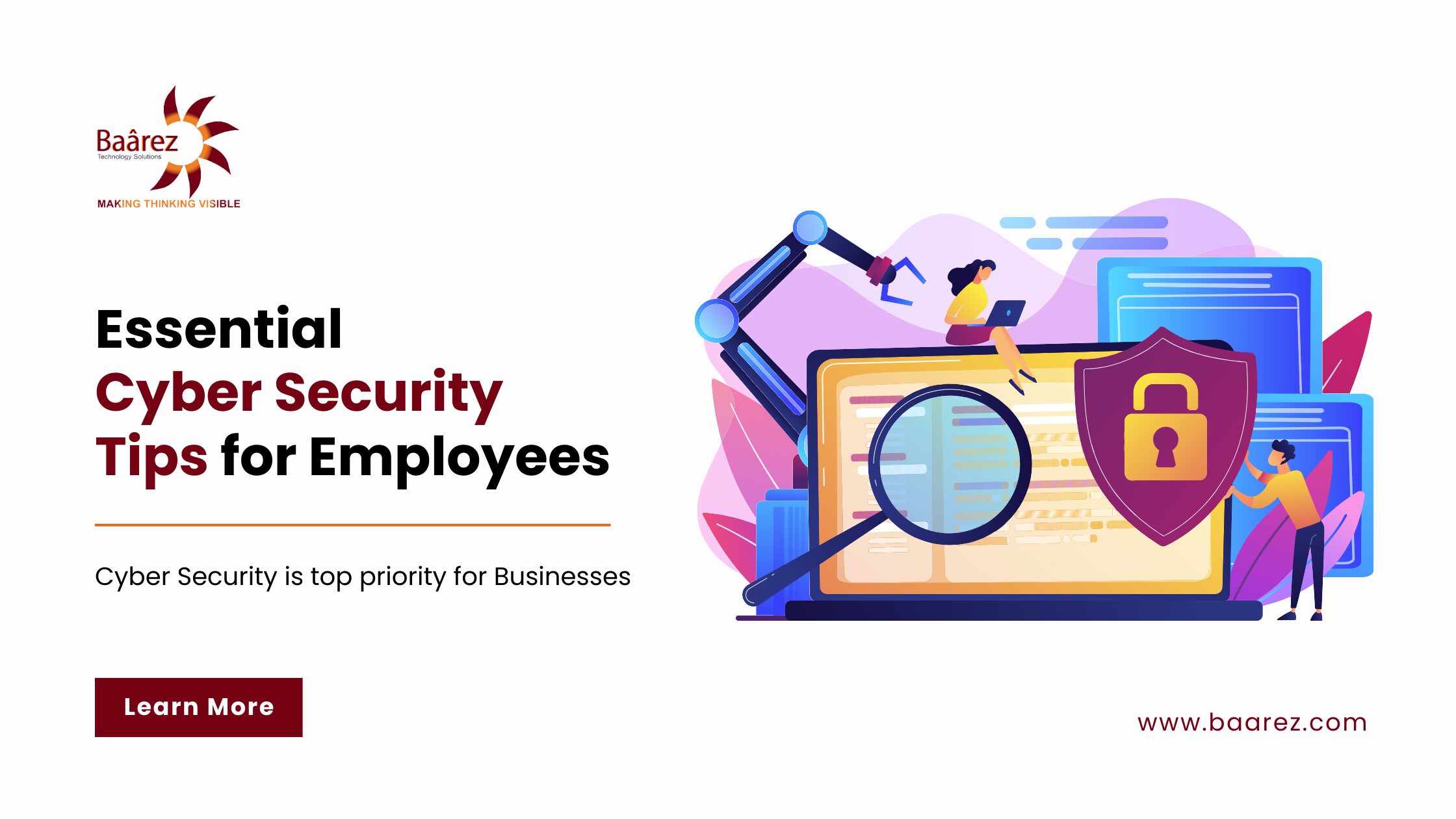
In today’s digital age, cybersecurity is a top priority for businesses. With evolving technology, the risks of data breaches, phishing, and malware attacks increase, making it critical to educate employees on cybersecurity best practices. By equipping your team with these essential tips, you can build a strong frontline defense against cyber threats and protect sensitive company data.
1. Think Before You Click: Avoid Reckless Clicking
One careless click can lead to severe security breaches. Cyber attackers often disguise malicious links to appear trustworthy. Here’s how employees can stay safe:
- Avoid unsolicited emails and links unless they come from a known, trusted source.
- Hover over links to preview where they lead; be wary of URLs that don’t match the link’s description.
- Update security software regularly to block the latest threats.
- Be cautious about sharing personal information online, as cybercriminals can exploit it for identity theft.
Encouraging employees to think before clicking is a proactive measure to prevent cyberattacks.
2. Enforce Two-Factor Authentication (2FA)
Adding an extra layer of security can be invaluable. Two-factor authentication (2FA) ensures that users verify their identity with more than just a password:
- Require a unique code generated by an authenticator app or sent via SMS in addition to the password.
- Even if passwords are compromised, 2FA prevents unauthorized access.
Make 2FA mandatory for access to sensitive company data, and educate employees on its importance to reduce cybersecurity risks.
3. Recognize and Report Phishing Scams
Phishing is one of the most prevalent forms of cyber-attacks, where attackers attempt to deceive users into revealing sensitive information:
- Train employees to identify suspicious emails that contain typos, odd sender addresses, or urgent language.
- Encourage immediate reporting of suspected phishing attempts.
- Implement email security measures, such as spam filters and malware scanning, to reduce phishing threats.
Awareness and vigilance against phishing scams can significantly strengthen your organization’s cybersecurity posture.
4. Manage Your Digital Footprint
Every online action leaves a digital footprint that hackers can exploit. Encourage employees to be mindful of their online presence:
- Limit personal information shared on social media and public platforms.
- Use strong, unique passwords for all accounts.
- Keep software updated to protect against new threats.
- Trust instincts—if something feels suspicious, it likely is.
By managing their digital footprint, employees can minimize exposure to cyber threats and protect personal and company information.
5. Keep Software Updated
Regular software updates are crucial for closing security gaps that cybercriminals can exploit. Encourage employees to:
- Install updates promptly for operating systems, applications, and security software.
- Enable automatic updates when possible for convenience and consistency.
By keeping systems up-to-date, your organization can prevent vulnerabilities and stay resilient against emerging cyber threats.
6. Connect to Networks Securely
Whether working from home, the office, or remotely, secure internet connections are a must:
- Use a VPN (Virtual Private Network) to protect data from being intercepted by hackers.
- Connect only to trusted networks and avoid public Wi-Fi, especially when handling sensitive information.
Encourage secure network practices to protect company data, even when employees work outside the office.
7. Safeguard Mobile Devices
Mobile devices often contain sensitive information, making them a prime target for cybercriminals. Advise employees to:
- Use strong passwords and enable device encryption.
- Install updates regularly to maintain security.
- Download apps only from reputable sources.
- Avoid jailbreaking or rooting devices as this can disable built-in security features.
- Report lost or stolen devices immediately to IT for timely deactivation and data protection.
Implementing mobile security practices is crucial as more employees use personal devices for work tasks.
8. Stay Alert to Social Engineering Tactics
Social engineering is a deceptive technique where cybercriminals manipulate individuals to gain confidential information. This includes phishing, fake websites, and phone scams:
- Instruct employees to verify the identity of unknown contacts before sharing information.
- Report suspicious communications immediately to the IT team.
- Educate staff about red flags like unexpected requests for sensitive data or urgent language.
By raising awareness about social engineering, employees can become more resilient to psychological manipulation tactics used by cybercriminals.
9. Regularly Backup Important Data
Regular backups are a crucial defense against data loss from cyberattacks, accidental deletions, or system failures:
- Encourage employees to use external hard drives or secure cloud storage to store backups.
- Set up a consistent backup schedule to ensure data is always protected.
- Consider encrypting sensitive backups to prevent unauthorized access.
Data backups not only protect against accidental loss but also provide a reliable way to recover from ransomware attacks.
Strengthening Cybersecurity Starts with Employee Awareness
Incorporating these nine cybersecurity tips into your workplace can significantly reduce the risk of cyber threats. A well-informed team is the best defense against online threats. Empower your employees with the knowledge and tools to protect both personal and company data, creating a safer and more secure working environment.
Protect your organization’s infrastructure with Baarez’s Cyber Security Services.


